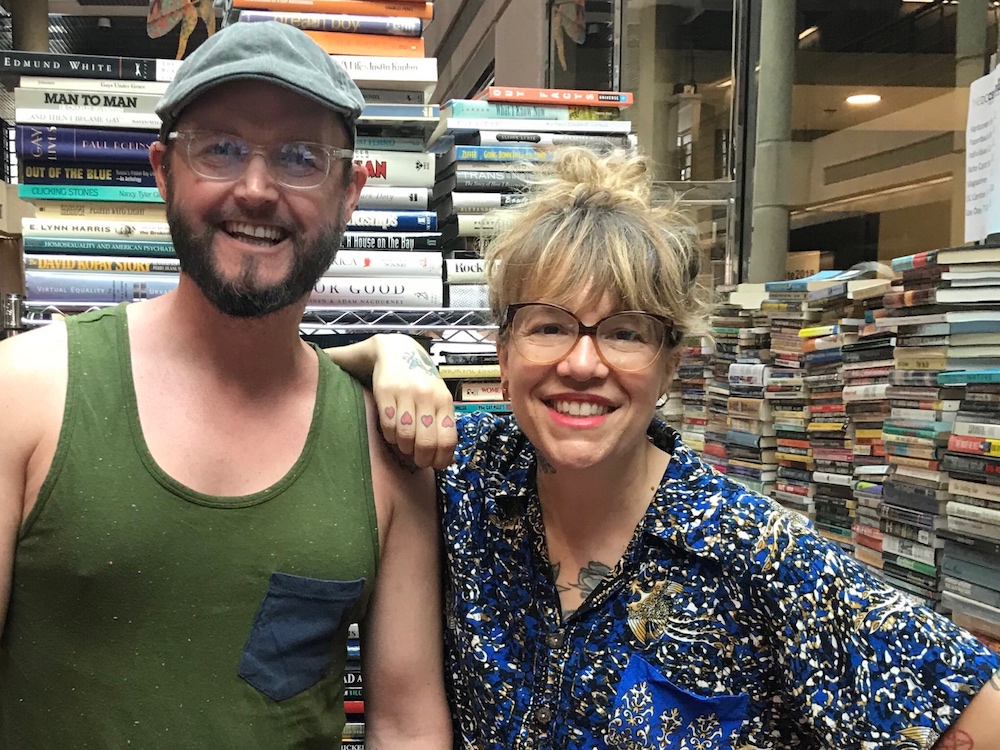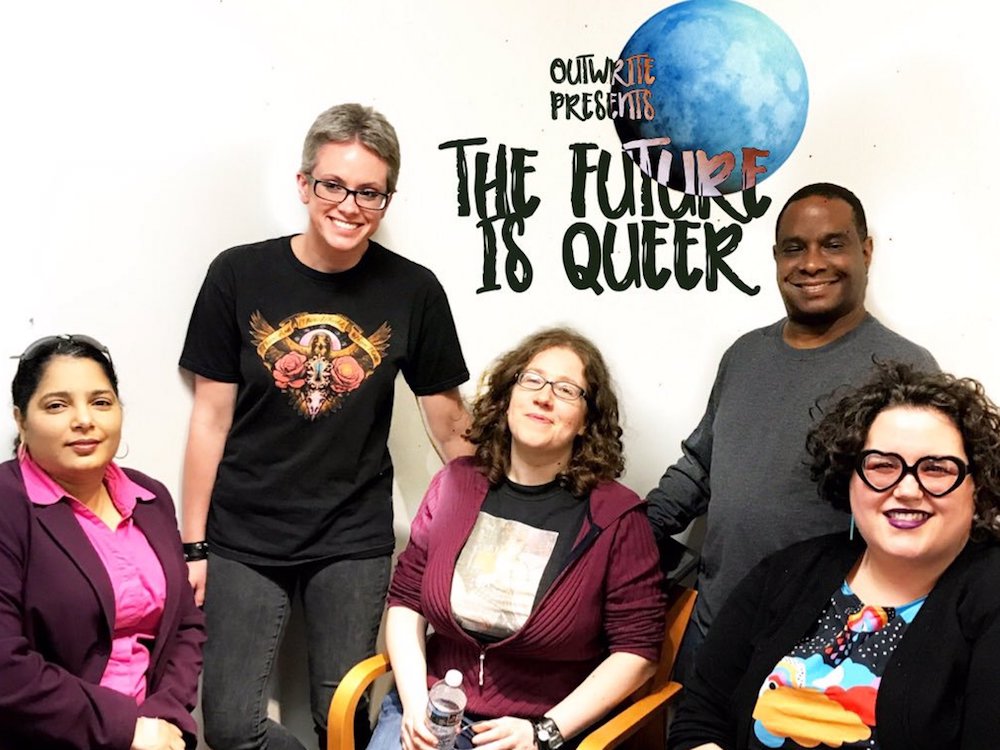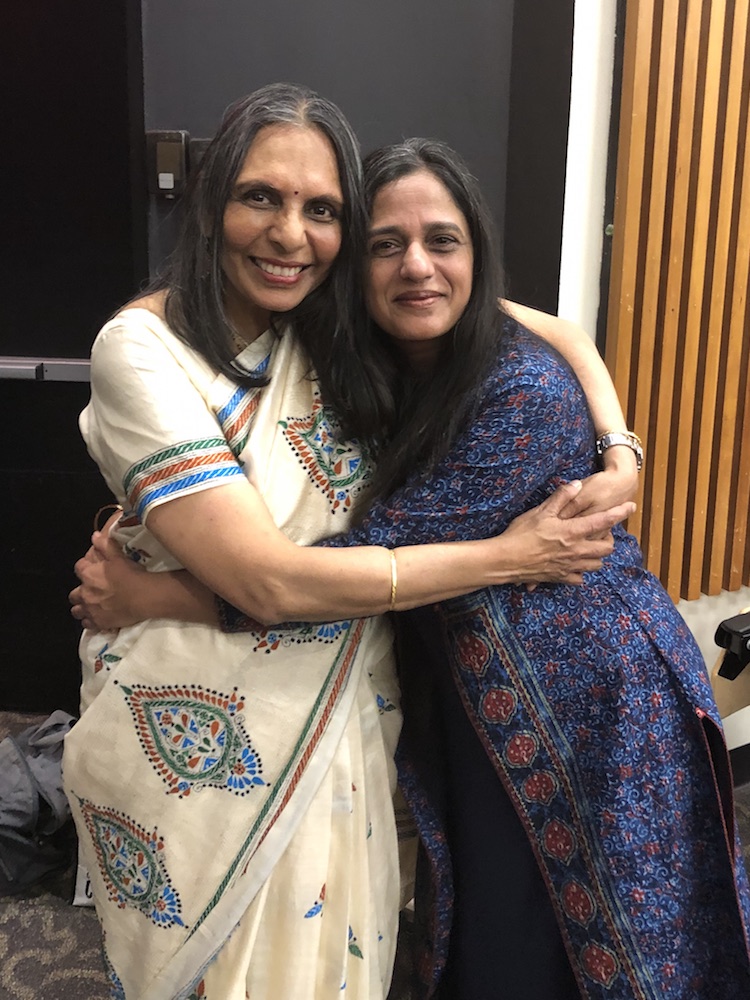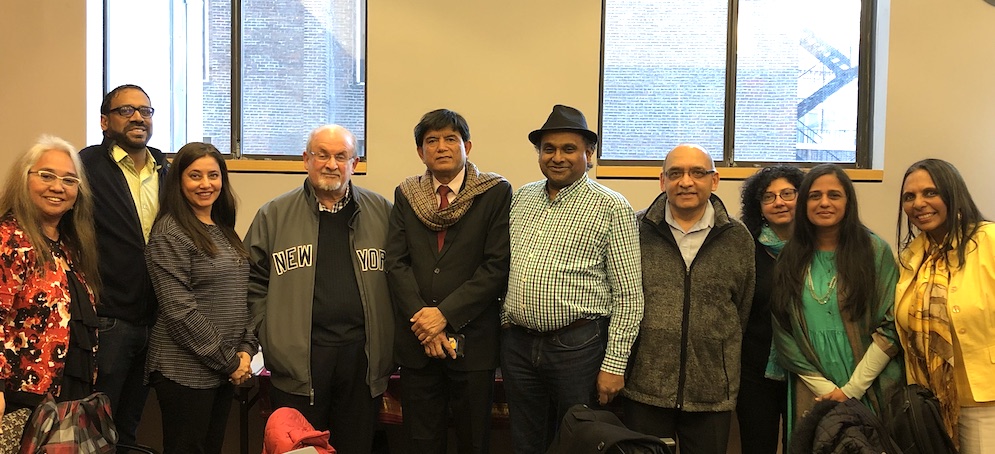East City Bookshop
East City Bookshop has become a gathering place for book lovers of all ages since opening in 2016. The friendly staff offers favorite book picks, and there are author events, book clubs, and community events throughout the year.

Jump to navigation Skip to content
East City Bookshop has become a gathering place for book lovers of all ages since opening in 2016. The friendly staff offers favorite book picks, and there are author events, book clubs, and community events throughout the year.

dave ring is the community chair of the OutWrite LGBTQ literary festival in Washington, D.C. He has been honored to receive fellowships and residencies from Lambda Literary, FutureScapes, DISQUIET, and the Sundress Academy for the Arts. Currently at work on a novel, his stories have been published or are forthcoming by GlitterShip, A Punk Rock Future, and the Disconnect. He is the editor of the anthology Broken Metropolis: Queer Tales of a City That Never Was published by Mason Jar Press. Follow him on Twitter at @slickhop.
 Currently I’m the community chair of the annual OutWrite LGBTQ literary festival, held annually on the first weekend in August in Washington, D.C. I inherited the position from Julie Enszer, the editor of Sinister Wisdom. Last year’s keynote speaker was activist and writer Michelle Tea, and the festival itself featured more than ninety authors, forty exhibitors, and a full day of readings and panels—all put on by volunteers.
Currently I’m the community chair of the annual OutWrite LGBTQ literary festival, held annually on the first weekend in August in Washington, D.C. I inherited the position from Julie Enszer, the editor of Sinister Wisdom. Last year’s keynote speaker was activist and writer Michelle Tea, and the festival itself featured more than ninety authors, forty exhibitors, and a full day of readings and panels—all put on by volunteers.
In addition to the annual festival, OutWrite holds a number of literary events throughout the year. Marianne Kirby, author of the novels Dust Bath Revival and Hogtown Market, organizes an annual speculative reading series in May at East City Bookshop that changes its name a bit each year. In 2017 we held the first reading, “The Future Is Queer,” with Craig Gidney, Sunny Moraine, Day Al-Mohamed, and Sarah Pinsker. In 2018 “The Future Is Still Queer” welcomed Na’amen Tilahun, K. M. Szpara, Ruthanna Emrys, and Marlena Chertock. 2019’s reading on May 4 will be called “The Future Is Still Very Queer” and features Rashid Darden, Nibedita Sen, and Lara Elena Donnelly.
Reflecting on the reading series, Marianne says, “Curating this series of readings focused on queer speculative fiction has been a tremendous reminder that queer identity by its very nature is speculative. When we create and share our visions of the future, we create radical art.”
 OutWrite events always remind me how beautiful and affirming representation is. Representation can become sanctuary in a reality that frequently erases, elides, or minimizes queer people’s existence, not only in relation to queerness, of course, but all the other identities that they carry with them. Honoring and showcasing those identities has been a gauntlet worth picking up.
OutWrite events always remind me how beautiful and affirming representation is. Representation can become sanctuary in a reality that frequently erases, elides, or minimizes queer people’s existence, not only in relation to queerness, of course, but all the other identities that they carry with them. Honoring and showcasing those identities has been a gauntlet worth picking up.
This year’s festival has three featured writers: Kristen Arnett, Jericho Brown, and Wo Chan. Themes include: faith and sexuality, exploring colonialism and diaspora-driven identities, the legacy of Stonewall, and the line between identity and commodity (particularly for writers of color). Friday, August 2 is our kickoff and on Saturday, August 3, we’ll have ten panels and twenty readings. The festival concludes on Sunday, August 4 with six writing workshops, open to both emerging and experienced writers. One of those workshops, “Culinary Speculative” led by Nibedita Sen, will explore the exciting intersection of worldbuilding and food. Please join us!
Support for Readings & Workshops in Washington, D.C. is provided by an endowment established with generous contributions from the Poets & Writers Board of Directors and others. Additional support comes from the Friends of Poets & Writers.
Photos: (top) dave ring and Michelle Tea (Credit: Phill Branch). (bottom) The Future Is Queer readers (Credit: dave ring).“So few grains of happiness / measured against all the dark / and still the scales balance.” In this video produced by the Academy of American Poets, Jane Hirshfield reads “The Weighing” from the new anthology, Here: Poems for the Planet, which will be published this week by Copper Canyon Press. The anthology includes poems by Margaret Atwood, Kwame Dawes, Ross Gay, Nikki Giovanni, Robert Hass, Aimee Nezhukumatathil, Mary Oliver, and others.
Poets! Consider submitting your manuscripts and poems to the following contests, all with a deadline of April 30. Each contest offers publication or a prize of at least $1,000:
Ashland Poetry Press Richard Snyder Publication Prize: A prize of $1,000, publication by Ashland Poetry Press, and 50 author copies is given annually for a poetry collection. Entry fee: $27.
Beloit Poetry Journal Adrienne Rich Award for Poetry: A prize of $1,500 and publication in Beloit Poetry Journal is given annually for a single poem. Patricia Smith will judge. Entry fee: $15.
Finishing Line Press New Women’s Voices Chapbook Competition: A prize of $1,000 and publication by Finishing Line Press is given annually for a poetry chapbook by a woman who has not yet published a full-length collection. Leah Maines will judge. Entry fee: $16.
Marsh Hawk Press Poetry Prize: A prize of $1,000 and publication by Marsh Hawk Press is given annually for a poetry collection. Marge Piercy will judge. Entry fee: $25.
Mudfish Poetry Prize: A prize of $1,200 and publication in Mudfish is given annually for a single poem. John Yau will judge. Entry fee: $20.
Poetry Foundation Ruth Lilly and Dorothy Sargent Rosenberg Poetry Fellowships: Five fellowships of $25,800 each are given annually to U.S. poets between the ages of 21 and 31. Entry fee: None.
Trio House Press Louise Bogan Award: A prize of $1,000, publication by Trio House Press, and 20 author copies is given annually for a poetry collection. The winner is also asked to serve as a part-time volunteer for Trio House Press for two years after publication. Sandy Longhorn will judge Entry fee: $25.
Trio House Press Trio Award for First or Second Book: A prize of $1,000, publication by Trio House Press, and 20 author copies is given annually for a first or second poetry collection. The winner is also asked to serve as a part-time volunteer for Trio House Press for two years after publication. Malena Mörling will judge. Entry fee: $25.
Tupelo Press Berkshire Prize: A prize of $3,000 and publication by Tupelo Press is given annually for a first or second poetry collection. Entry fee: $30.
University of Iowa Press Iowa Poetry Prize: Publication by University of Iowa Press is given annually for a poetry collection. Entry fee: $20.
University of Pittsburgh Press Agnes Lynch Starrett Poetry Prize: A prize of $5,000 and publication by University of Pittsburgh Press is given annually for a debut poetry collection. Ed Ochester will judge. Entry fee: $25.
Visit the contest websites for complete guidelines, and check out the Grants & Awards database and Submission Calendar for more contests in poetry, fiction, and creative nonfiction.
“That is what my grandfather, Glafkos, must have felt like. / Wandering the hillsides and down to the sea while his parents labored...” In Delphi 1927, a multimedia performance by Eleni Sikelianos, the poet examines her family history and her great grandparents’ efforts to revive the Delphic Festivals. Sikelianos’s collection What I Knew (Nightboat Books, 2019) is featured in Page One in the May/June issue of Poets & Writers Magazine.
The poetry podcast Haiku Chronicles celebrates Poem in Your Pocket Day with this video featuring poems from Yosa Buson, Akiko Yosano, Allen Ginsberg, and others.
“Forgive / yourself, they say, but / after you forgive / what you have lived, / what is left?” At San Francisco State University’s Poetry Center, Forrest Gander reads “Stepping Out of the Light” from his collection Be With (New Directions, 2018), for which he won the 2019 Pulitzer Prize award in poetry.
Usha Akella is the author of six books, and her most recent collection was published by Sahitya Akademi in India. She earned an MSt in Creative Writing from Cambridge University and is the founder of Matwaala, the South Asian Diaspora Poets’ Collective, and the Poetry Caravan series, which brings poetry readings and workshops to women’s shelters, senior homes, educational institutions, and hospitals. She has read her poems at a number of international poetry festivals and was selected as a Creative Ambassador for Austin, Texas in 2015.
 Walking toward the Red Room at the KGB Bar in the East Village for a Matwaala poetry reading, Sophie Naz and I spotted a sign with the words “Waste your money” in front of a restaurant and we burst out laughing. It’s these random things that punctuate one’s flowing experience of the tumult of New York City—and I’d say of Matwaala too. Things that are quirky, like little bolts of lightning in our pedestrian life. Like Salman Rushdie sauntering in at the opening of the Matwaala poetry festival at New York University. Like Yogesh Patel’s whale metaphor to capture the angst of immigration or Sophie Naz’s Russian hat, a prominent sartorial prop at the festival. Like the Matwaala mug, which acts as the physical award given to the poet-of-honor with their lines of poetry inscribed on it.
Walking toward the Red Room at the KGB Bar in the East Village for a Matwaala poetry reading, Sophie Naz and I spotted a sign with the words “Waste your money” in front of a restaurant and we burst out laughing. It’s these random things that punctuate one’s flowing experience of the tumult of New York City—and I’d say of Matwaala too. Things that are quirky, like little bolts of lightning in our pedestrian life. Like Salman Rushdie sauntering in at the opening of the Matwaala poetry festival at New York University. Like Yogesh Patel’s whale metaphor to capture the angst of immigration or Sophie Naz’s Russian hat, a prominent sartorial prop at the festival. Like the Matwaala mug, which acts as the physical award given to the poet-of-honor with their lines of poetry inscribed on it.
Since its inception, Matwaala has been marked by magic, community, and camaraderie, a festival that was birthed to increase the visibility of South Asian poetry. Realizing its mission could be achieved in New York City, where it broils with academic institutions and cultural ferment, Pramila Venkateswaran, our codirector, and I moved it from Austin, Texas to New York in 2017.
Eleven of us gathered at New York University, Hunter College, Nassau Community College, and the Red Room to read and share our poetry with students, faculty, and audience members. U.K. poets Yogesh Patel, the 2019 poet-of-honor, and Kavita A. Jindal joined us from across the pond. U.S. poets Indran Amirthanayagam, Zilka Joseph, Vikas Menon, Sophia Naz, Ralph Nazareth, Ravi Shankar, Yuyutsu Sharma, Vivek Sharma, and Pramila Venkatewaran visibly moved audiences with poetry textured by the issues of immigration, displacement, politics, identity, family, and experiential moments of life that have no labels.
Back in Austin, what is foremost in my heart is gratitude for so many who believe in softening borders. Kindness has no skin color. Bonnie Rose Marcus and the Readings & Workshops Program at Poets & Writers, Tim Tomlinson and Deedle Tomlinson, and Norman Spencer made so much possible. The universities that hosted us—NYU, Hunter, and NCC—gave South Asian voices a chance to be heard. Live on poetry is what I heard for three days. Your time is now.

Support for the Readings & Workshops Program in New York City is provided, in part, by public funds from the New York State Council on the Arts, and the New York City Department of Cultural Affairs, with additional support from the Frances Abbey Endowment, the Cowles Charitable Trust, and the Friends of Poets & Writers.
Photos: (top) Pramila Venkateswaran and Usha Akella (Credit: Usha Akella). (bottom) left to right: audience member, Ravi Shankar, Kavita A. Jindal, Salman Rushdie, Yuyutsu Sharma, Indran Amirthanayagam, Yogesh Patel, Zilka Joseph, Usha Akella, and Pramila Venkateswaran (Credit: Usha Akella).The first-ever picture of a black hole was revealed last week, an image from the Messier 87 galaxy taken by eight radio observatories on six mountains and four continents in 2017. Spend some time looking at the picture online, including a wider, zoomed-out view. The New York Times calls it a “doughnut of doom,” while Vice Motherboard says it looks like a SpaghettiO. What emotions does the image bring to the surface for you? Write a poem that captures the wondrous significance of the image, perhaps imbuing your verse with humor, terror, and a mixture of scientific vocabulary and figurative language.

“Look for beauty and grace even in the challenging material, whenever possible.” —Kenji C. Liu, author of Monsters I Have Been